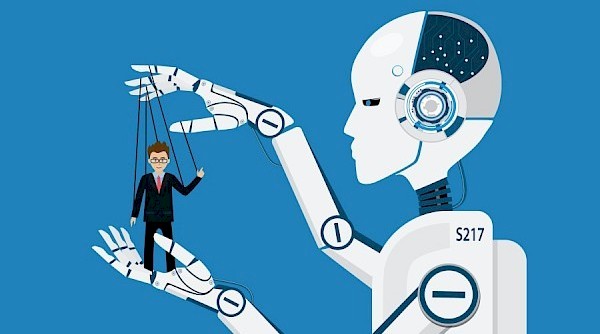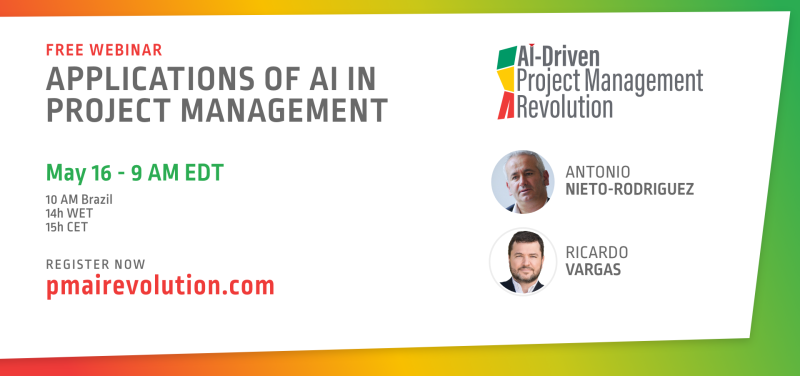Issue #3 - Is AI Putting Our Values as a Society at Risk?
In this issue, I explore the profound impact of AI on education and daily life. I remember the contrast between my master's studies in 2001, with library research, and the current instant access to information through search engines. Ethical concerns such as AI-facilitated plagiarism arise, leading to schools banning ChatGPT.

In this issue, I explore the profound impact of AI on education and daily life. I remember the contrast between my master's studies in 2001, with library research, and the current instant access to information through search engines. Ethical concerns such as AI-facilitated plagiarism arise, leading to schools banning ChatGPT. Are prohibitions the right solution, or is there a need for educational reform to adapt to this new reality? The influence of AI is undeniable, and preparing for this transformative era is essential.
Brave New World
Emerging technological tools like ChatGPT, Co-Pilot, and Bard AI have taken the world by storm. But this is not new. Machines started to challenge humans decades ago. Do you remember IBM's Deep Blue in 1997, when it defeated the world's best chess player, the Russian grandmaster Garry Kasparov?
If AI can compete with the most brilliant human minds, then who knows the limits of its potential?
How will AI impact the way we learn? Google developed an engine where it was faster to search for information than going to the library. During my master's studies in 2001, I was instructed by my supervisor not to rely on search engines for my research sources. Instead, I had to traverse the seemingly endless corridors of the university library to locate reference materials. This experience is one that I will never forget.
That sounds surreal today.
Going Back to Earth
Now, let's move away from AI "Human Rights" and dive into our daily lives. Several ethical implications are arising, and we do not yet know how to handle them.
For example, there is a real potential for generative AI models to facilitate plagiarism. Have we entered an era of copy/paste 2.0? In fact, many institutions are starting to question the use of ChatGPT in education.
New York City Public Schools (NYCPS) and the Los Angeles Unified School District have already taken steps to ban ChatGPT. Citing negative impacts on content safety and accuracy, one spokesperson said, "While the tool may provide quick and easy answers to questions, it does not build critical thinking and problem-solving skills, which are essential for academic and lifelong success."
But is the ban feasible? Is prohibition the right approach? Do we need these bans, or do we need to reinvent education?
It is a question that each of us probably has a different answer for.
Organizations must carefully consider where they seek technological assistance, how to mitigate its effects, and how to verify the outputs generated by AI models.
While AI tools are capable of generating vast amounts of information, it is ultimately up to human judgment to determine how, when, and where this information is utilized.
Imagine the possibilities of learning quickly, drawing meaning from infinite data sources to generate something unique. It is fascinating!
Here lies the power of AI that will lead us to the cure of diseases, waste reduction, fast development of medicine, and several other highly positive applications.
Meanwhile, humans need to apply judgment and wisdom to use the right tool in the right situation. We must consider the ethics of using our knowledge for the greater good.
There is no escape from that, at least for the moment.
AI Will Disrupt Work As We Know It
White-collar jobs are in for a disruption. It is not just customer care, bankers, and legal assistants. According to a recent report from the investment bank Goldman Sachs, AI could replace as many as 300 million jobs worldwide. Traditionally considered "secure" white-collar jobs like lawyers, engineers, and doctors - everyone's work will be disrupted by AI.
Did you know that ChatGPT is a licensed practitioner of law? Recently, GPT-4 passed the Uniform Bar Exam with a 298/400, landing in the 90th percentile of top students. And its language model is getting smarter. In the earlier version, GPT-3.5's test score was 213/400, in the 10th percentile of students.
AI is improving incredibly fast. Perhaps "incredibly fast" is not fast enough to describe it.
Did you know that Instagram took 2.5 years to reach 100 million users, and ChatGPTdid that in a few weeks?
The question for me now is not "Will AI change the way I work or not?" or "How soon will AI change the way I work?" The question now is, "Am I prepared to reinvent myself?"
The relevance of our work will be defined by what skills will be valued in the future, says former IBM CEO Ginni Rommetty in an interview with Bloomberg about her new book, Good Power: Leading Positive Change in Our Lives, Work, and World.
If we do not reinvent what we do, AI will reinvent it for us.
Managing Projects with AI
As you know, my life is all about projects. I've spent more than 25 years finding ways to deliver better projects, and I have been engaged with AI in project management for quite a while.
And I have the same butterflies in my stomach as anyone else when I see what is coming.
In 2015, I published the paper "Applying Neural Networks and Analogous Estimating to Determine the Project Budget." In the article, I explained how mechanisms like Neural Networks could predict with a high level of confidence the probability of you meeting the budget of a future project based on the risk, size, and complexity of previous projects.
This article is eight years old.
Today, the tools discussed in the essay are child's play compared with what exists today.
I am 100% sure that generative AI will take a seat in the cockpit to manage and support our project efforts. And I am not saying it "may" take a seat. I am saying it "will" take a seat.
It is already affecting the way we report performance, the way we evaluate risks, and the way we budget projects, among several other applications.
AI can be applied everywhere in the project context. I discussed the power of ChatGPT in a podcast episode about how AI will change the field.
And this trend will not only affect incremental or traditional project management. The use of AI will have a substantial impact on agile project development. One of my last podcast episodes talks about it. You can listen to it here.
This technology can redefine how we approach project planning, risk assessments, and performance evaluation, ultimately helping us achieve higher efficiency and success.
But as with any tool, it is up to us to harness this power responsibly, ensuring that we maintain the human-centered values of collaboration, empathy, and ethical decision-making.
And the time to take on this responsibility is now.
If we fail to grasp the extensive implications of AI in our work, perhaps in six months' time, AI will be the one teaching us how to do so.
What is in my Radar Recently?
A quick self-check to assess burnout symptoms
Do not miss this insightful article from Harvard Business Review that provides a simple two-minute self-check to assess whether an individual is experiencing burnout symptoms. It suggests focusing on physical and emotional symptoms such as exhaustion, lack of motivation and decreased satisfaction with work.
Why art thrives at Burning Man
Although it may seem unrelated, I plan to participate in Burning Man this year to seek out new and diverse experiences that foster my ability to think creatively and innovate. In 2018, I had the opportunity to attend TED in Vancouver, where I was able to watch Nora Atkinson's live talk about art at Burning Man.
If you're interested in exploring new and diverse experiences, I recommend watching Nora Atkinson's TED talk about art at Burning Man. It's truly inspiring.
Quick Announcements
AI in Project Management Webinar and Masterclass
Join Antonio Nieto-Rodriguez and me on a unique and revolutionary journey into the future of project management, leveraging the latest advancements in Artificial Intelligence technology.
Our next webinar, "Applications of AI in Project Management," will happen on May 16th at 14:00 (WET), 9 AM (ET).
Stay tuned also for the dates of our AI Masterclass on July 5th and 12th. Registrations are not open yet but will be soon.
Register for the webinar and get more information about the Masterclass here.

Scholarship Program
I want to share something that fills my heart with joy and gratitude. I run a Scholarship and Financial Aid Program at my online school, supporting over 55 talented professionals from 26 countries so far.
I'm dedicated to securing more resources to keep this incredible program growing. We invite students from war-torn areas, low-income countries and regions, unemployed individuals, people with disabilities, and other underrepresented minority groups to apply. The applications are open year-round.
Please share this link with anyone you think might be eligible and could benefit from this opportunity.
Ricardo's Keynotes and Events
Several people ask me about my upcoming keynotes, webinars, and talks. My website has a section dedicated to the public events I participate in. You can check all of them here. Maybe a future event is happening close to you or covers a topic you find helpful for your professional journey!
Your Opinion Counts!
Access the previous issues here.
If you have any suggestions, comments, or anything else that will help me improve it, please send a note to [email protected] with your suggestions. I would love to hear from you.
Please feel free to share this newsletter with your friends, colleagues, and other people you may find will benefit from it. They can also subscribe to receive it here.
Thanks for your support, and I hope it was helpful to you.
Cheers,
Ricardo